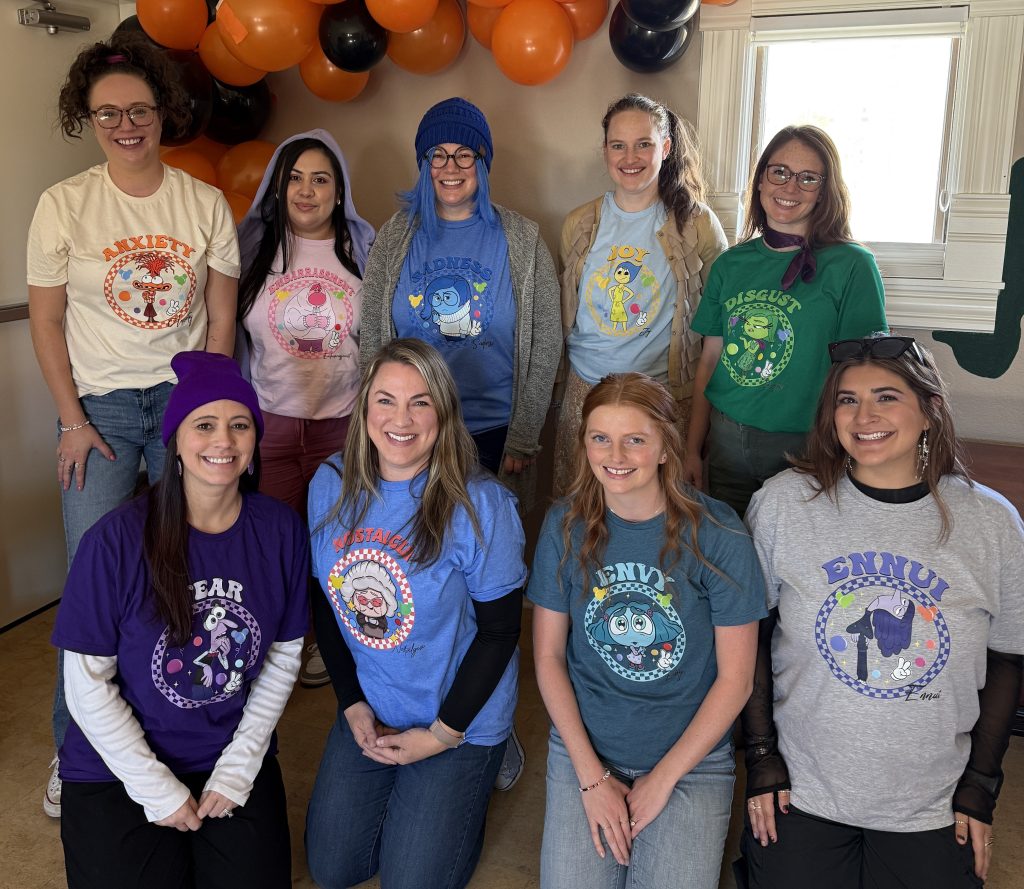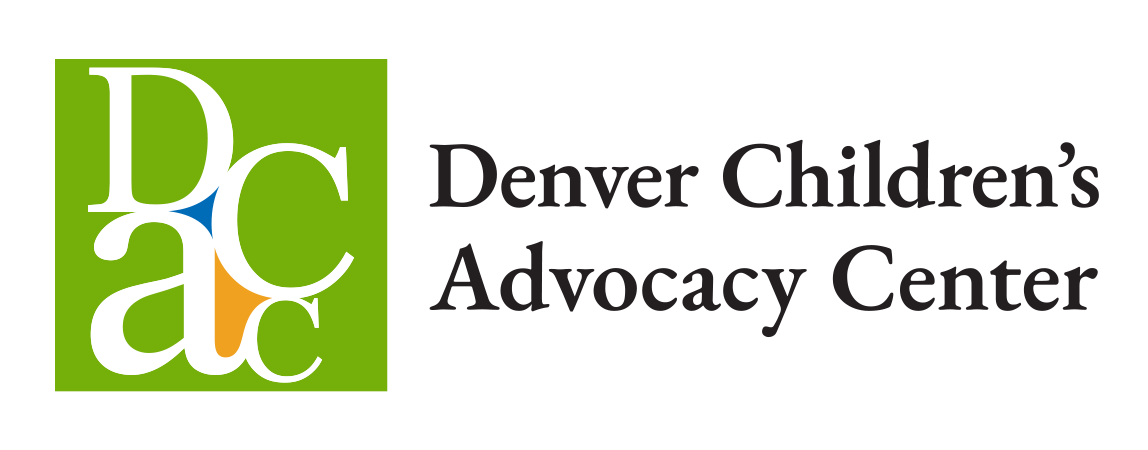Denver Children’s Advocacy Center’s Assessment and Treatment Team proactively ensures every member of their team is trained in evidence-based treatment modalities, meaning approaches to counseling and supportive services that are tested and proven to be successful in treating children who have experienced trauma and abuse.
The National Children’s Alliance (NCA), which sets standards for Children’s Advocacy Centers (CACs) throughout the nation, requires that “the mental health team must include a trauma history, screening and assessment of trauma and abuse related symptoms, and evidence-based, trauma focused mental health services for child victims and caregivers.”
It’s the combination of meeting national standards and best serving children and their no-offending family members that drive DCAC’s team. No child is the same, which is why DCAC’s team offers a variety of treatment approaches.
One family member shared that one of the most helpful things about the services at DCAC was, “working with a provider who honored my child’s neurodiversity and applied an evidence-based treatment to help him.”

Learn more about the evidence-based treatment modalities DCAC’s therapists are trained in and what it means to their work.
- Eye Movement Desensitization and Reprocessing (EMDR), Emily Murphy, Amy Bell, Emma Skok
- EMDR is a structured therapy that uses bilateral stimulation, like eye movements, to help patients process traumatic memories by reducing the stress and emotion associated with those memories.
- “EMDR is such a helpful treatment modality for children who may struggle to express their thoughts and feelings verbally,” Amy said. “Unlike traditional ‘talk therapy,’ EMDR helps children process distressing memories and emotions in a more experiential and natural way. I’ve seen children be able to work through tough thoughts and feelings about a traumatic event after not being able to talk about it aloud.”
- Trauma Focused Cognitive Behavioral Therapy (TF-CBT), Entire Treatment and Assessment Team (Emily Murphy, Amy Bell, Emma Skok, Ashley Khan, Samantha Mastaler, Ashley Spaulding, Yimalisse Nazario)
- This therapy is done with children and their non-offending family members to help children who have experienced trauma develop coping skills for regular life occurrences.
- “TF-CBT has helped me lay a foundation before getting into trauma processing and kids feel more prepared,” Yimalisse said.
- “Trauma-Focused CBT (TF-CBT) has been a powerful tool in helping children process and heal from traumatic experiences,” Ashley said. “This structured, evidence-based approach allows me to guide kids through difficult emotions, build coping skills, and rewrite painful narratives in a way that feels safe and empowering. TF-CBT offers both structure and flexibility, making it a deeply effective path toward resilience and hope.”
- Child-Parent Psychotherapy (CPP), Ashley Khan
- CPP integrates a variety of theories including attachment theory, cognitive behavioral theory, and more to help children and their non-offending family members strengthen their relationships to support the children’s mental and physical well being.
- “Child-Parent Psychotherapy (CPP) has deeply shaped the way I support young children and their caregivers in healing from trauma,” Ashely said. “Through CPP, I’ve witnessed firsthand the powerful impact of strengthening the caregiver-child relationship as a foundation for emotional recovery and resilience. This evidence-based model has given me the tools to help families make sense of difficult experiences, repair ruptures, and restore safety and trust within the caregiving relationship. It’s an honor to walk alongside families as they find their way back to connection, one healing moment at a time.”
- Problematic Sexual Behaviors (PSB- CBT), Amy Bell and Samantha Mastaler
- The PSB-CBT family treatment model addresses problematic sexual behavior in school-aged children (ages 7-12). This program is recognized and supported by research as being highly effective in reducing or eliminating problematic sexual behavior in youth. The program works with caregivers and the youth to increase safety and communication as well as promote healthy, positive choices in youth with PSB.
- Child and Family Stress Intervention (CFTSI), Amy Bell
- CFTSI is a short term (typically 5 to 8 session) treatment that helps children and adolescents cope with trauma symptoms following a traumatic or stressful event.
- “By working with the child/adolescent and a caregiver together, I have seen improvements with their relationship and communication skills,” Amy said. “Clients are able to see a decrease in trauma symptoms in a relatively short time frame which is so helpful!”
- Synergetic Play Therapy (SPT), Ashley Khan
- SPT is a newer research-informed model that blends play, nervous system regulation, and connection to help children process trauma in a safe, embodied way.
- “I’m currently training in Synergetic Play Therapy (SPT), and it’s been an exciting addition to my work with kids,” Ashley said. “Even as I’m still learning, I’ve already seen how useful it can be—helping kids feel more in control, understood, and connected during the healing process.”
